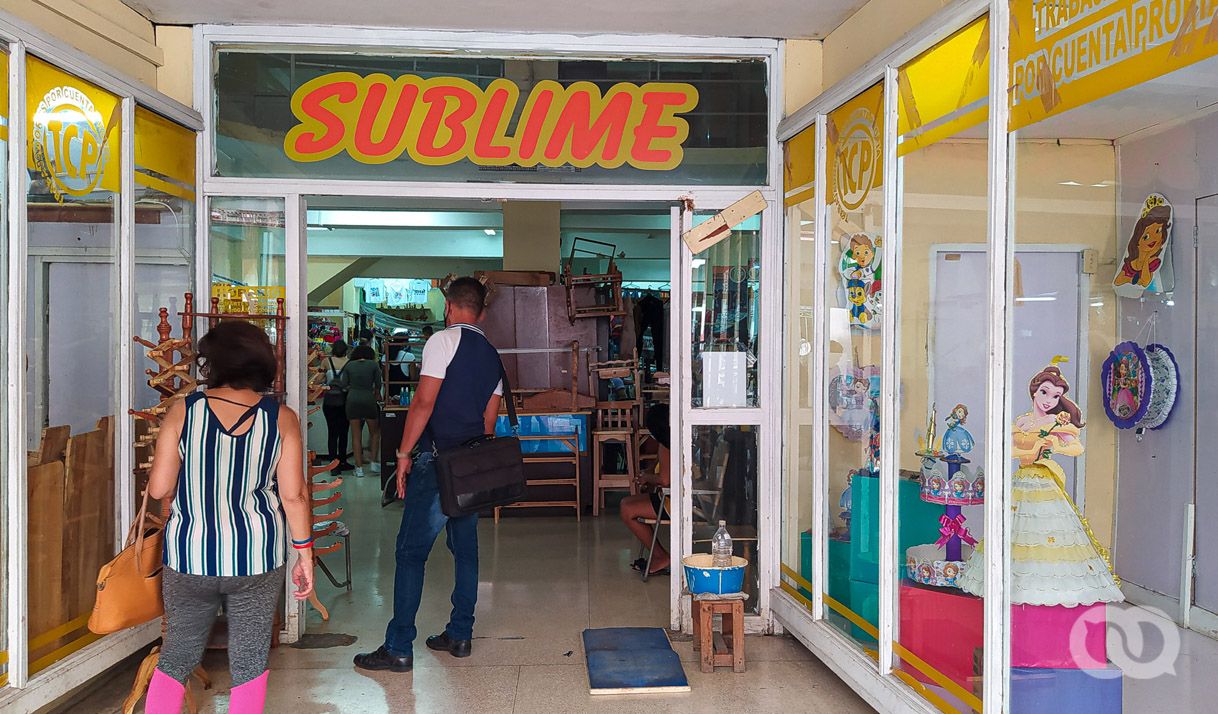Deputy Foreign Trade & Investment Minister, Ana Teresita Gonzalez Fraga, ratified on August 15, 2022, that the “State monopoly” on Cuban foreign trade will be maintained.
During the announcement on the Mesa Redonda TV program of a new package of economic measures that aims to alleviate the deep crisis suffered by the island, Gonzalez appealed to the “strategic errors” mentioned by Raul Castro during the VIII Congress of the Communist Party, when he referred to allowing private commercial importation to establish a non-state trading system.
“There are limits that we cannot exceed because it would lead to the destruction of socialism, because the consequences would be irreversible and would lead to strategic errors and the destruction of socialism; and, therefore, of the sovereignty of the nation”, Raul Castro had declared in April 2021.
Regarding the possibility that “non-state economic actors” import directly from abroad, the deputy minister indicated that this activity will be authorized only to “a group determined by the authorities” and “under the control of the Ministry of Foreign Trade and Foreign Investment (Mincex)”.
The rules for the “exceptional status”, according to Gonzalez, will be determined by the capacity of private companies to produce goods and services with export possibilities, especially those related to the informatics industry. Likewise, the import powers will be granted to those private entities that “can market their products and services with better prices to Cuban society.”
Another element pointed out by the official is that non-state companies authorized to import “have their own differentiated and executable flows (funds) for import and export, so that they do not exert additional pressure on the country’s demand for foreign exchange.” In other words, that they can independently obtain the foreign currency they need for their economic activities without resorting to state agencies.
In this regard, the Cuban economist Mauricio De Miranda described Mincex’s monopoly over all foreign trade activities on the island as an error.
“The deputy minister says that it is not a whim to maintain the monopoly on foreign trade. Likewse, she does not accept that there is a non-state trade. She appeals to Raul’s words about “strategic errors”. In my opinion, it is a strategic error to maintain the state monopoly,” said De Miranda on the social network Twitter.
Ana Gonzalez announced some new measures adopted for foreign investment and domestic and foreign trade in Cuba.
Among them, the following stand out: “promote the development of businesses that promote wholesale trade through foreign investment and, selectively, the creation of joint (state-private) ventures to carry out retail trade activities.”
The objective is that these foreign investment businesses “are destined, fundamentally, to the sale of raw materials, inputs, equipment, and other goods that can contribute to promoting the development of national production. In addition, to the supply of finished goods such as food and cleaning products, and the installation of electricity generation systems with renewable energy sources.”
Likewise, it was approved “to allow that these entities pre-finance national producers with the capacity to become suppliers.”
Another of the announced measures is the application in these entities of a differentiated financial scheme that guarantees the stability of the supply chain. “This scheme must include the authorization to make sales in MLC” (the US dollar magnetic currency), noted Gonzalez.
Regarding the possibility of foreign investment in non-agricultural cooperatives and other forms of non-state management, the head of Internal Trade Betsy Diaz Velazquez only stated that the answers to these questions “are found on the Ministry’s website.”
According to Mauricio De Miranda, with these measures “the Cuban government insists on deepening the dollarization of the domestic market amid a high level of discretion in decisions. “Mixed companies are authorized for wholesale trade, but the monopoly on retail sales and foreign trade is not broken.”
This article was translated into English from the original in Spanish.


If you believe that our journalism is important for Cuba and its people, we want you to know that this is a critical moment.
Behind each publication there is a team that strives to ensure that our products meet high quality standards and adhere to professional and ethical values.
However, to keep a close watch over government, demand transparency, investigate, analyze the problems of our society and make visible the hidden issues on the public agenda is an effort that requires resources.
You can contribute to our mission and that is why today we ask for your help. Select the way you prefer to send us a donation.









comments
We moderate comments on this site. If you want to know more details, read our Privacy Policy
Your email address will not be published. Mandatory fields are marked with *